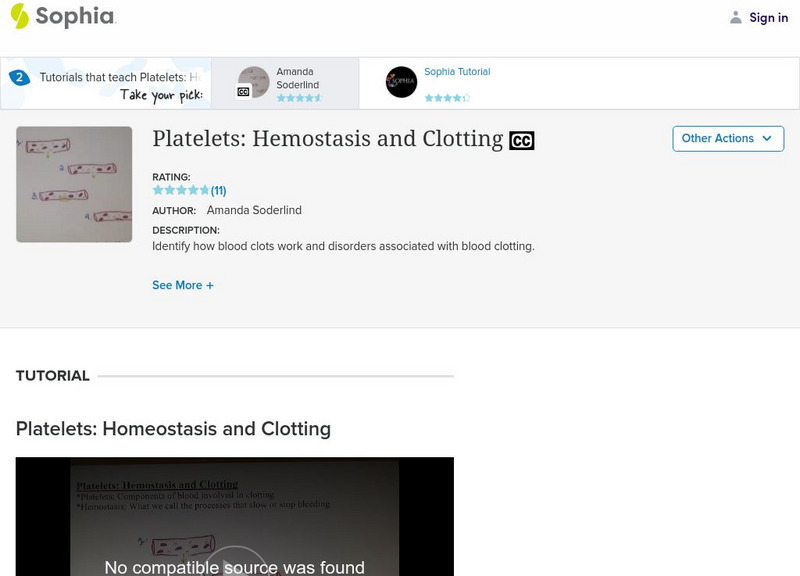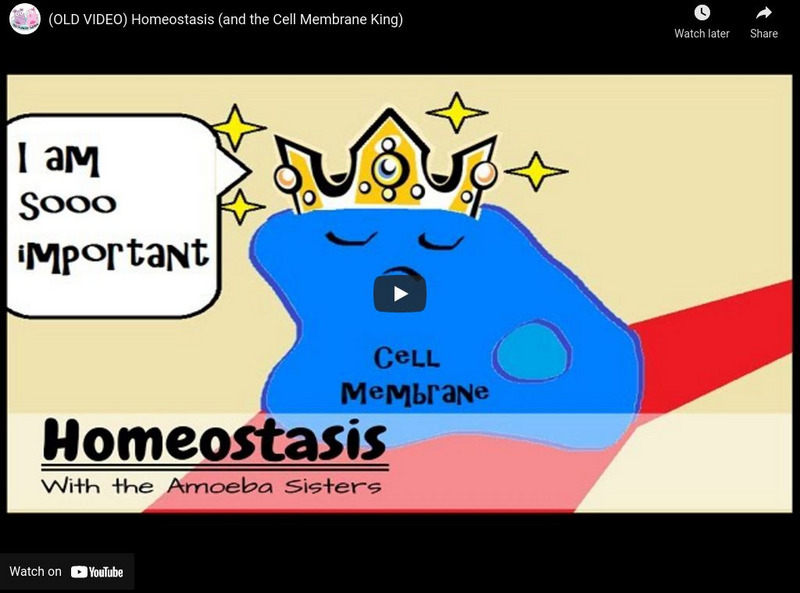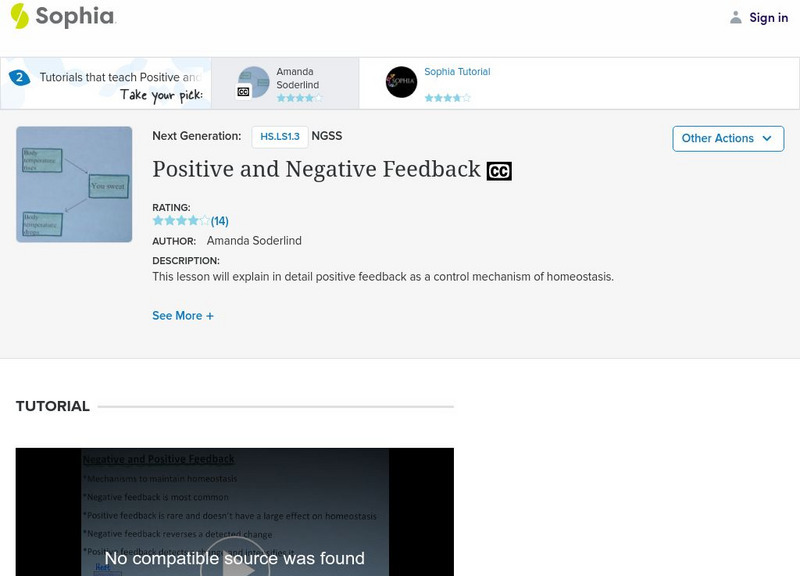Hi, what do you want to do?
Crash Course
The Excretory System: From Your Heart to the Toilet
Beginning with how different animals excrete waste, this short video moves on to the human excretory system from the kidneys, to capillaries, to the loop of Henle, to the excretion out of the body.
Bozeman Science
Positive and Negative Feedback Loops
A video explains both positive and negative feedback loops including body temperature, ripening fruit, and diabetes. An accompanying worksheet helps organize scholar's notes.
Amoeba Sisters
Homeostasis (and the Cell Membrane King)
The homeostasis pose is a popular yoga pose, and a video will explain how to do it properly. It also covers why we shiver, why we sweat, and the difference between a cell wall and a cell membrane.
TED-Ed
What Happens When You Get Heat Stroke? sun stroke, homeostasis, body temperature
Exertional heat stroke is one of the three leading causes of death in sports, but with the help of this video young athletes will be able to avoid this life-threatening condition. Offering clear explanations of how the...
PBS
Pbs Learning Media: Bubonic Plague
In this video segment adapted from A Science Odyssey, learn about bubonic plague and how city officials in San Francisco tried to contain its spread in the early 1900s. [5:06]
Khan Academy
Khan Academy: What Is Life?
Defining life is harder than it seems. This video explains four key qualities that all living things possess: Metabolism, Homeostasis, Reproduction, and Adaptation. DNA plays a crucial role in all of these qualities. [10:24]
Sophia Learning
Sophia: Entropy and Negentropy: Lesson 3
At the end of this tutorial, the learner will understand the concepts of entropy and negentropy and will understand that systems gradually move towards entropy unless additional energy is introduced to them. It is 3 of 3 in the series...
Sophia Learning
Sophia: Homeostasis and Bone Remodeling: Lesson 1
This lesson will define the role of bone remodeling in maintaining homeostasis in the body. It is 1 of 4 in the series titled "Homeostasis and Bone Remodeling."
Sophia Learning
Sophia: Platelets: Homeostasis and Clotting: Lesson 1
This lesson will identify the role of platelets in maintaining homeostasis and preventing major blood loss. It is 1 of 3 in the series titled "Platelets: Homeostasis and Clotting."
Sophia Learning
Sophia: Urinary Homeostasis: Lesson 1
This lesson will identify the role of the kidneys in maintaining homeostasis in extracellular fluids. It is 1 of 3 in the series titled "Urinary Homeostasis."
Amoeba Sisters
Amoeba Sisters: Homeostasis
A video explaining why homeostasis is necessary and how the cell membrane controls the cell's homeostasis. Teachers can visit Amoeba Sisters' website for a handout that goes along with video. [4:12]
Khan Academy
Khan Academy: Endocrinology and Diabetes: Blood Sugar Levels
Normal and elevated blood sugar levels before (preprandia) and after (postprandial) a meal.
Khan Academy
Khan Academy: Nerve Regulation of the Heart: Getting a New Heart
Think through the result of getting a new heart, and how the heart can still maintain homeostasis when the nerves are no longer around. Rishi is a pediatric infectious disease physician and works at Khan Academy.
Bozeman Science
Bozeman Science: Homeostasis Hugs
Paul Andersen explains how hugs between tissues can help maintain homeostasis. Countercurrent heat exchange allows heat to stay within the core of the body. Close contacts between the capillaries and alveoli allow our body to maintain...
Bozeman Science
Bozeman Science: Response to External Environments
Paul Andersen explains how organisms respond to the external environment. He begins with a discussion of behavioral responses like hibernation and migration. He ends with a discussion of physiological responses like shivering and...
Khan Academy
Khan Academy: Biology: Homeostasis
Video lecture describes homeostasis and how your body regulates your body temperature. [3:40]
Crash Course
Crash Course Biology #29: The Excretory System
Hank takes us on the fascinating journey through our excretory system to learn how our kidneys make pee. [12:21]
Sophia Learning
Sophia: Red Blood Cells
A narrated lesson examining the structure, function, and production of new red blood cells. [5:20]
Khan Academy
Khan Academy: Threshold 5: Life on Earth Video
Through a diversity of chemical elements and the perfect conditions on Earth, life mysteriously appeared. [2:58]
Khan Academy
Khan Academy: Human Body Systems: Homeostasis
Ever wondered why your temperature stays at 98.6 degrees? Learn about homeostasis and how your body maintains a stable temperature. [3:39]
Sophia Learning
Sophia: Homeostasis: Maintaining a Constant Internal Environment
This lesson will examine various homeostatic controls that allow the body to maintain a constant internal environment.
Sophia Learning
Sophia: Positive and Negative Feedback: Lesson 1
This lesson will explain in detail positive feedback as a control mechanism of homeostasis. It is 1 of 4 in the series titled "Positive and Negative Feedback."
Sophia Learning
Sophia: Urinary Homeostasis: Lesson 3
This lesson will identify the role of the kidneys in maintaining homeostasis in extracellular fluids. It is 3 of 3 in the series titled "Urinary Homeostasis."
Sophia Learning
Sophia: Urinary System and Extracellular Fluid Homeostasis
This lesson will identify the role of the kidneys in maintaining homeostasis in extracellular fluids.




























